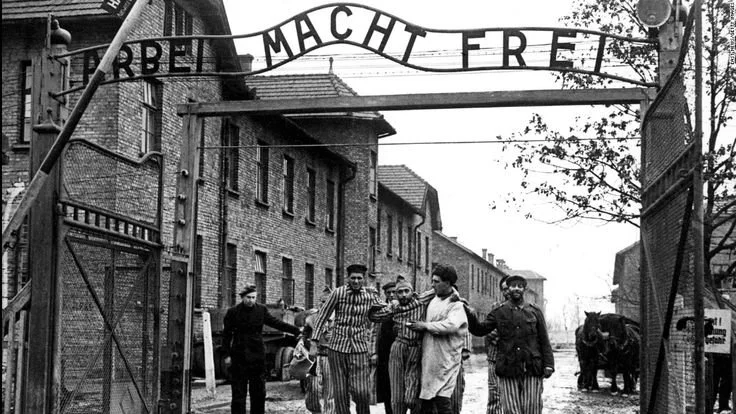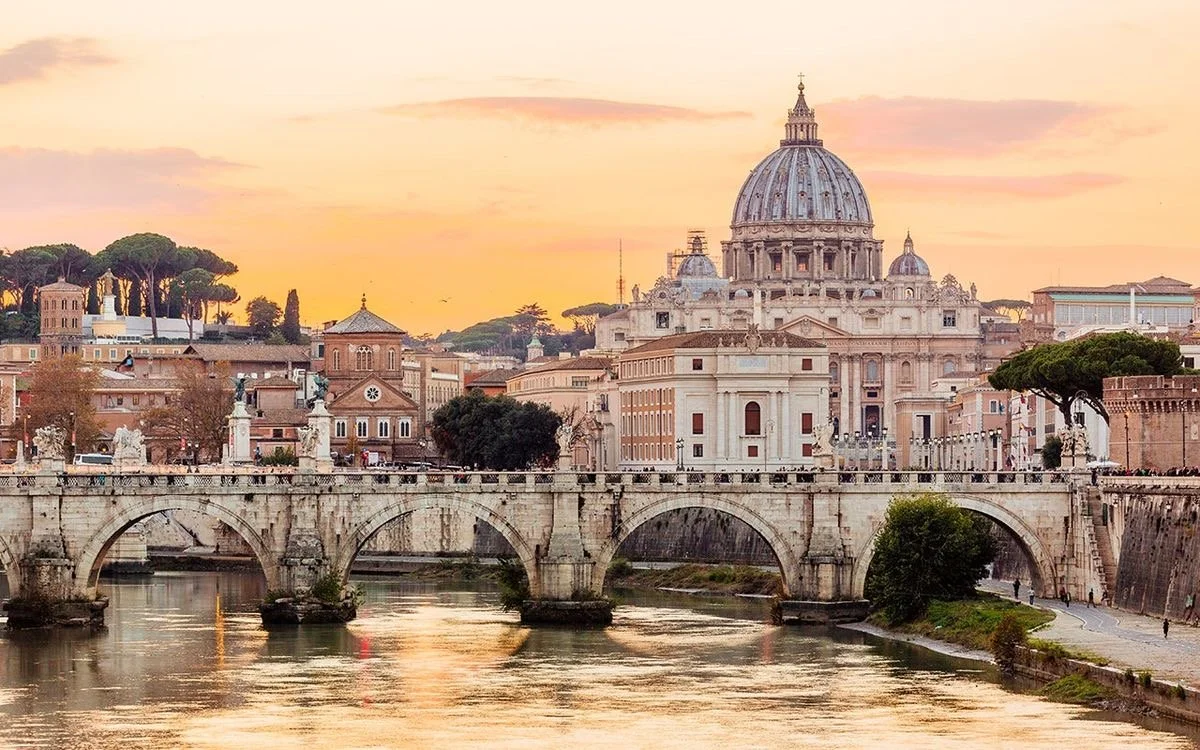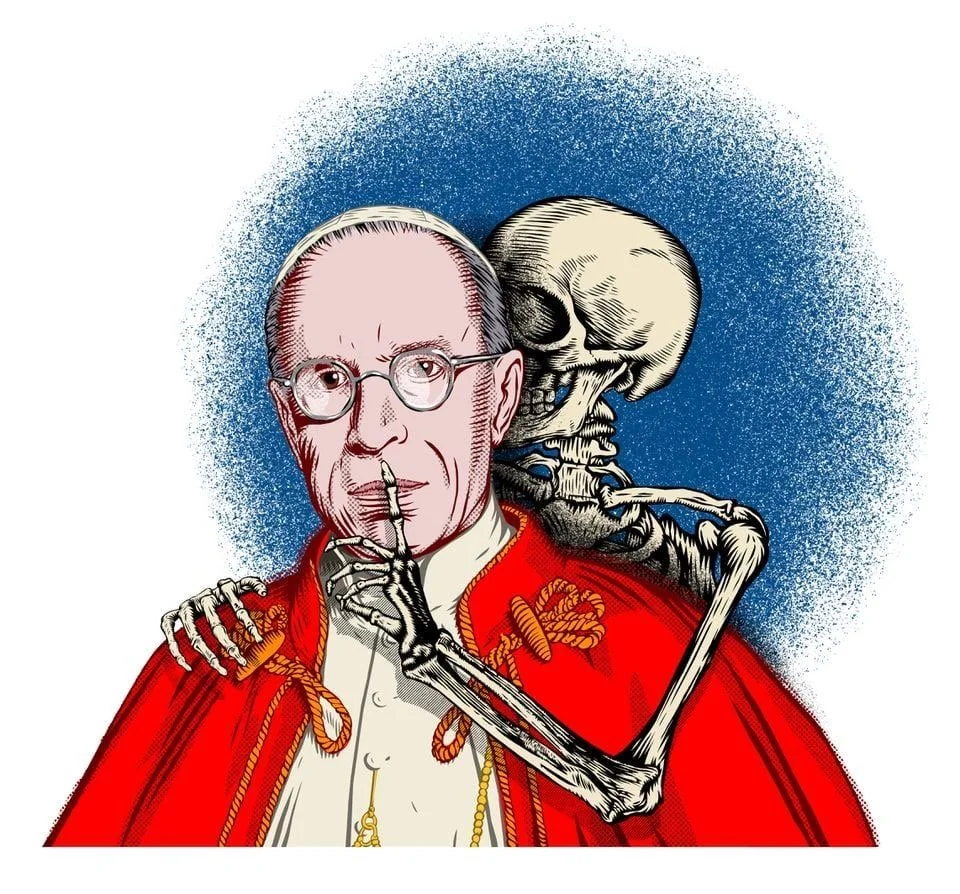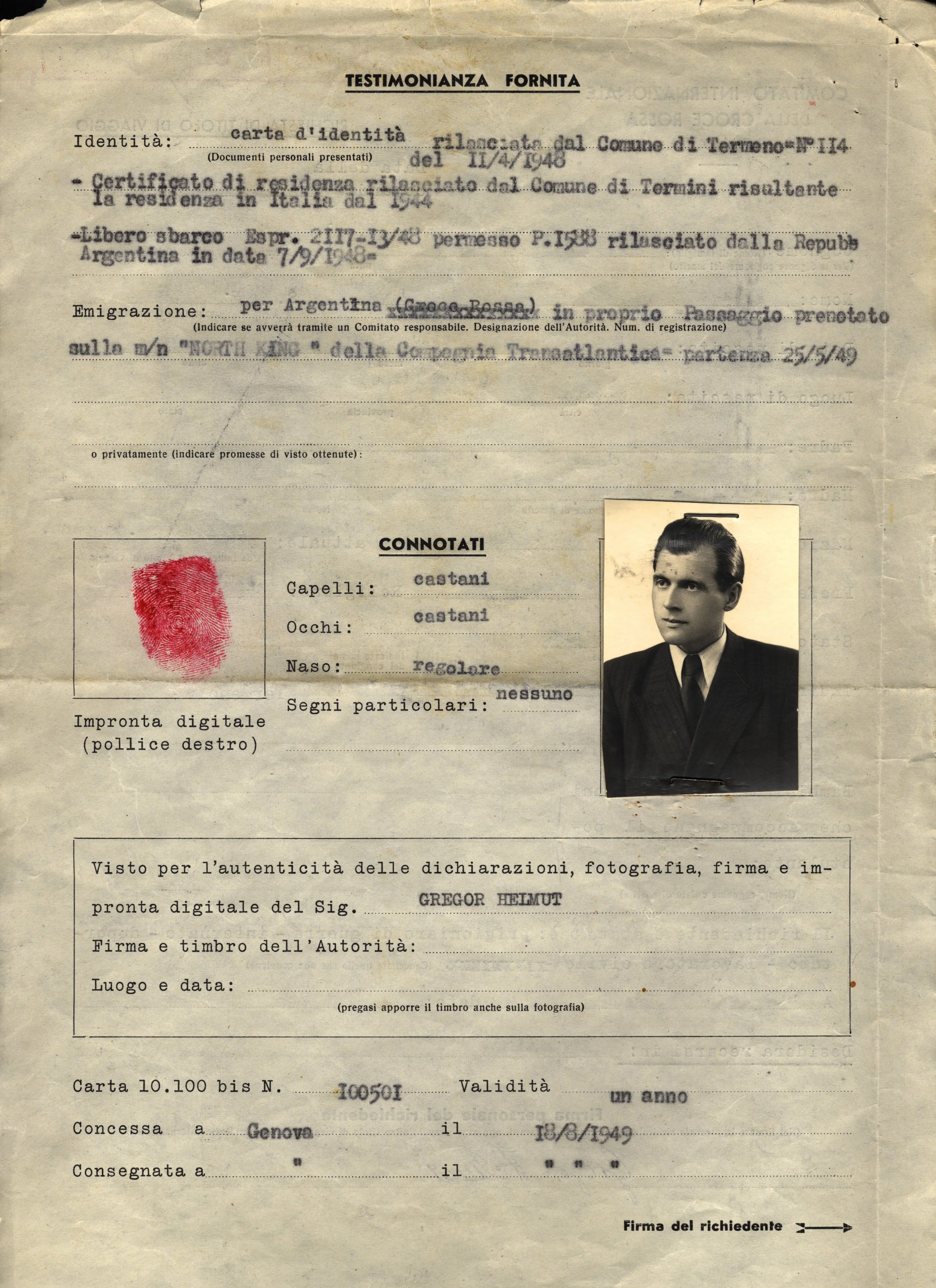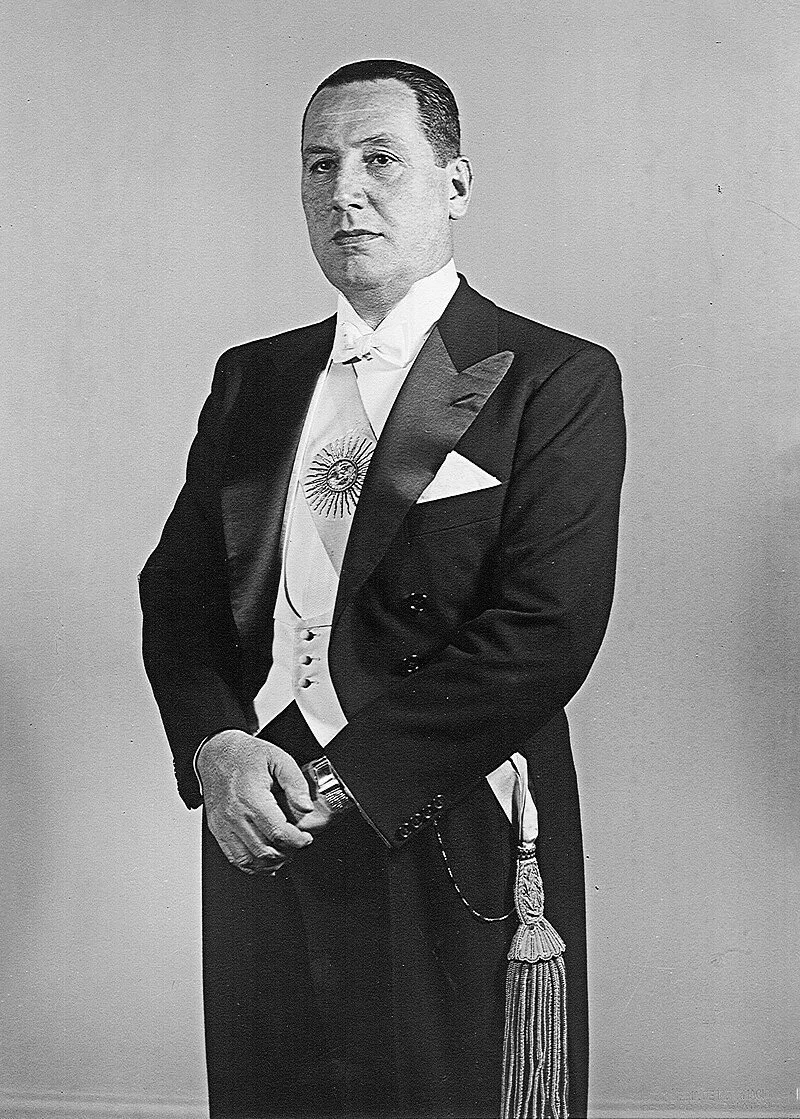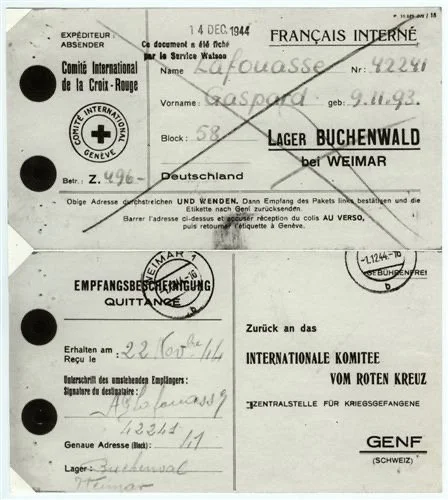Third Reich’s Mistreatment of Jews
The reign of Adolf Hitler, who was the chancellor of Germany from 1933 to 1945 who caused a lot of havoc and uncertainty for Jews in Europe and especially within Germany. Hitler rose to power in 1933 and instantly started implementing Nazi ideology to and indoctrination of the masses. Hitler especially did not like the Jews and drafted legislation against them which impacted their lives. Some of the legislation was limiting Jewish practice of religion such as being able to practice Judaism during a certain time frame, excluding them from being in some professions, and making Jews wear the Star of David, which marked them for physical and mental violence by officers and German citizens. In 1939, Hitler began to introduce the first Jewish ghettos in Piotrków Trybunalski, Poland which is located in the province of Łódź. Ghettos were created by Nazis to have Jews in a secluded place and be controlled and monitored and that placed all Jews together under the nastiest living conditions and were constantly monitored by Nazi officers. In 1941, he and other Nazi officials came up with the “Final Solution,” which was a plan to completely terminate Jews from Europe and create concentration camps to do the job. In 1942-43 the Nazi military began deporting Jewish individuals to these camps where most of them met their death in the gas chambers, by being shot, or through hard labor, malnourishment, and physical violence.
As the Second World War moved into 1945, Germany was losing the land it had occupied before the war. By the war's end, Germany knew it would not win, especially in the Battle of Berlin in 1945. Germany shifted their focus to the whereabouts of the Red Army known as the Russian Soviet Republic army closing in on Germany. To the Red Army’s surprise, they discovered concentration camps that the Nazis had hidden throughout the war. In the camps, they found political suspects, prisoners of war, and Jews who were extremely malnourished, wounded, and physically and mentally deconstructed. After concentration camp perpetrators dispersed in a variety of ways after the war by escaping, committing suicide, dying during the war, hiding, being captured, immigrating to other countries, and persecution. Many of these perpetrators were nervous about their fate because, of the crimes they committed during the Holocaust. Many countries’ governments went looking for concentration camp perpetrators to bring them to justice, for their Crimes against Humanity.
Between 1933 to 1945 over 44,000 concentration camps were established by Nazi Germany and their allies. The camp personnel who helped operated the camp were over 1,000 people containing officers, S.S., physicians, assistants, commodants, gestapos, Jewish roles of heiarchy which were roles given to Jewish prisoners to control their barracks which, resulted in them getting better rations of food and sometimes better treatment as well
On January 27, 1945, The Red Army liberated prisoners from the Auschwitz concentration camp. The camp is about 50 kilometers west of Krakow, Poland.
Ratlines
The “Ratlines” were escape routes that Nazis took to flee from Europe and persecution for their crimes in various parts of the world including the United States, South America, and Australia. They used these ratlines seeking safety to avoid justice for the heinous crimes they had committed during the Holocaust. Below are the top contributors who helped these Nazis make their escape successfully.
The Vatican
The Vatican is the headquarters of the Roman Catholic Church in the city-state of Vatican City, surrounded by, Rome, Italy. In the early 1930s, Benito Mussolini, Italy’s fascist dictator had developed strong ties to Hitler and his National Socialists. In other words other Nazis where Mussolini gave them financial assistance for the Nazi party. He allowed the National Socialists’ paramilitaries to train in Italy. For this to happen, Hitler persuaded Mussolini to be war-time allies that a nationalist government in Germany would be a positive outcome. Mussolini died April 28, 1945, and the his role now fell to the Vatican to maintain the German- Italy relationship.
How was the Vatican helping the Nazis?
The Vatican created a back channel that is a route that can be taken to escape from Germany when Hitler in 1943 first wanted to create a relationship with Pope Pius XII. The Pope was in a difficult position, because he had a vow to Hitler by aiding Nazi escape and protecting his people. Pope Pius XII thought that if Catholics and German Priests are protected then he can turn a blind eye to the Nazis when they needed to escape Europe as his end of the bargain. The Church keeps records of everyone from birth and often Nazis were supplied with false identities so, if someone died in the Holocaust it would be easy for the Nazi to escape because, also of the commitment the Pope made with the Germans. Catholic Priests worked together to establish escape routes for the Nazis which they would help with money and false identification from the Vatican Refugee Organization (a commission created by Pope Pius XII to help refugees after the war). Typically, when fleeing Europe, Italy was the quickest stop before traveling to South America.
Why is the Vatican helping the Nazis?
On February 10, 1939, Pope Pius XI died, and Pope Pius XII acquired the position. In the same year, Hiter sought a better relationship with the new Pope so, that Hitler can organize escape plans after the war for the rest of Nazi war criminals. Prince Phillip von Hessen was appointed by Hitler to open a back channel to Pope Pius XII. At their first meeting on May 11, 1939, Pope Pius XII explained his deep concern about the mistreatment of the Church especially the mistreatment of Catholic priests in Germany. Included in this discussion was the mistreatment of Catholics in German states. Previously, the Nazis’ long-term goal was to de-Christianize, German citizens and Press began to attack German Priests and once the Nazi Regime established concentration camps the priests were sent to the Priest Barracks of the Dachau Concentration Camp. Pius XII exclaimed, “I am certain that if peace between Church and state is restored, everyone will be pleased. The German people are united in their love for the Fatherland. Once we have peace, the Catholics will be loyal, more than anyone else.” He is insinuating that their agreement would be for the better for the two communities. The Pope was also at a crossroads because of the backlash the Church would later receive because of the circulating rumors of German Priests that were accused of sexual crimes where in that instance, the Vatican would certainly intervene.
Originally, in return for the protection of the German Priests and Catholics, Hitler wanted the Pope to stay out of politics and so he did just that. In Germany the press ended its attacks against the Catholic religion and priests. Individuals who brought up the state of the Jewish community or Nazi atrocities to Pope Pius XII received a biblical verse or dismiss a question by not responding because it did not align with what Hitler wanted. “In late August 1942, after more than 200,000 Ukranian Jews had been killed, Ukranian Metropolitan whom is a bishop of a Christian Church Andrej Septyckyj wrote a long letter to the pope, referring to the German government as a regime of terror and corruption, more diabolical than that of the Bolsheviks. The Pope replied by quoting verses from Psalms and advising Septyckyj to “bear adversity with serene patience.”
The International Committee of the Red Cross (ICRC) is an organization that has been helping people affected by conflict and armed violence and promoting the laws that protect victims of war since 1863. After the Second World War, the ICRC helped facilitate travel documentation for refugees and worked closely with the Vatican for references. The ICRC were overwhelmed by the number of refugees coming in. The ICRC had two positions for issuing travel documentation to Nazi fugitives. First, the influx of refugees after the war was very chaotic, and it was especially difficult to issue travel documentation to refugees. It is likely that Nazi fugitives were able to get by in the mist of the chaos and obtain documentation. Sometimes Nazi fugitives posed as stateless Germans to request travel documentation. The second position is that the ICRC was aware it was issuing Nazi fugitives with travel documentation. Sometimes the ICRC issued stolen documentation to the Nazis to get them out of the way and on to the next refugee.
Why did the ICRC not help the prisoners? During the war, the ICRC often visited concentration camps to supply food. The ICRC was aware of the atrocities the Nazis had committed but did not seek help for the prisoners. The ICRC’s headquarters are in Geneva, Switzerland, and per their policy, the ICRC was to “maintain strict neutrality and avoid interfering with Nazi racial persecution,” because it was viewed as a German internal matter. The ICRC was a facilitator of the Holocaust in not helping camp prisoners and being unable to go above their policy for the matters at stake.
Why would the ICRC purposefully supply Nazi travel documentation?
Gerald Steinacher, History Professor at the University of Nebraska-Lincoln, says that individual Red Cross discussions issued war criminals with 10.100s, a certain kind of documentation, "out of sympathy for individuals, or simply because they were overburdened.” Stolen documents were used to ensure the safety of Nazis. The ICRC’s job at this time was insanely difficult, and in the midst of the chaos, they allowed the Nazis to get by. The ICRC often gave stolen documentation to individuals, such as documentation from deceased individuals.
ICRC
Juan Perón
The Vatican in Rome, Italy today.
Boris Semeniako’s artwork named, Deadly Silence of Pope Pius XII
Juan Perón was elected on June 4, 1946, as Argentina’s new President. Perón’s administration valued and promoted industrialization and government intervention. He favored the Nazi belief that the communist Soviet Union was a greater threat than fascist Germany. Perón and the Catholic Church feared the rise of Communism and viewed Nazis as potential allies in future conflicts.
Why did Perón want to help Nazis more than Germans immigrate to Argentina?
Perón admired the dictatorship and style of Mussolini and Hitler and believed having Nazi officials in Argentina would serve as an economic boost. Perón recruited and utilized Nazis for their military, scientific, and technical expertise.
Why was Perón dispatching agents?
Perón displaced agents to Spain, Italy, Switzerland, and Scandinavia to make travel and financial arrangements suitable to bring Nazi war criminals to Argentina. Agents were also dispatched throughout Latin America, such as Colombia. These agents ensured that Nazis had jobs and housing when coming to Argentina. Before the war, the Argentinian government had sent officials to Europe to scope out a number of future fugitive populations so Argentina could prepare for their arrival.
In the ICRC National Archives, there is travel documentation issued to Nazis to escape to South America.
Travel documentation that the ICRC issued Nazi war criminal, Josef Mengele
Juan Perón, Argentina’s former President
